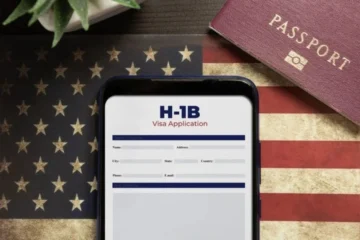You might speak fluent sarcasm and text like a pro, but when it comes to moving to New Zealand in 2025, your English needs to pass more than just the vibe check. The country has overhauled its visa requirements, and your ability to string together a coherent sentence — in test format — now plays a major role in whether you get through immigration or get stuck Googling “IELTS coaching near me.”
So, what’s changed, who’s affected, and can you still skip the dreaded English test? Let’s break it down.
Key Takeaways
Why Has New Zealand Updated Its English Language Requirements?
In short? To get serious about skilled migration. New Zealand isn’t just looking for warm bodies who’ve memorized “kia ora” and “flat white.” The updated English requirements are part of a bigger push to ensure that incoming migrants are job-ready, communication-savvy, and less likely to get lost in translation, literally or figuratively.
The government has made it clear: better English skills mean smoother integration into society and the workplace. With rising demands on public services and a growing emphasis on economic contribution, language proficiency is no longer a “nice-to-have” — it’s a dealbreaker.
These changes are also about consistency. By applying standardized rules across different visa categories, Immigration New Zealand (INZ) is cutting down the ambiguity (and the paperwork chaos) that came from too many exceptions and inconsistent requirements. The aim? Attract highly skilled workers, investors, and entrepreneurs who won’t need Google Translate to figure out a tenancy agreement or work contract.
So yes, it’s a filter. But it’s one that New Zealand believes will lead to a more capable and connected migrant community.
What Are the New English Criteria for Skilled Residence Visas?
If you’re eyeing a Skilled Residence Visa, know this: your passport alone won’t charm the immigration officer. Having an “English-speaking background” isn’t enough anymore. You now have to prove you can handle day-to-day life — and a New Zealand job — in English, either through a recognized test score or a qualifying history.
Here’s what INZ is looking for:
- Citizenship and at least five years of work or study in countries like Australia, Canada, the UK, the US, Ireland, or New Zealand — yes, your time in a Dublin pub might count if you also had a job there.
- An academic qualification taught entirely in English — at Level 7 or above (that’s roughly a bachelor’s degree or higher, for those of us not fluent in education-speak).
Failing that? You’re looking at a standardized English test, taken in person and within the last two years. This isn’t something you can dig out of your high school drawer — it needs to be current, credible, and ideally not scribbled on in the margins.
So, unless your past education or work life comes with a solid paper trail in English, it’s time to dust off those language prep books.
How Do the Rules Differ for Accredited Employer Work Visas?
Now, here’s where things get spicy. The Accredited Employer Work Visa (AEWV) has different tiers, depending on your job’s ANZSCO classification (that’s the Australia and New Zealand Standard Classification of Occupations, for the acronym-haters out there).
For Level 1–3 jobs (think engineers, IT specialists, nurses — roles that usually require qualifications and experience), there’s no mandatory English requirement. New Zealand assumes that if you’re designing bridges or saving lives, you’ve probably figured out how to ask for directions.
Also Read: Can New Zealand’s New Occupation List Help You Secure a Job and Visa?
But for Level 4–5 jobs (think trades, hospitality, construction labor, and entry-level roles), the English bar is firmly in place. And not a high bar, mind you — more like a low hurdle you still need to jump. You can either:
- Prove you’ve worked or studied for five years in an English-speaking country.
- Or, take an in-person English test within the past two years that meets the specific minimum scores.
The idea is to ensure that workers in customer-facing or safety-sensitive jobs can communicate effectively, both to avoid mishaps and to integrate better into the workplace. “Sorry, I didn’t understand” doesn’t go over well in a restaurant kitchen or on a construction site.
What Are the Accepted English Tests and Minimum Scores?
Here comes the section you’ll want to bookmark. Whether you’re applying for a residence visa, work visa, or aiming to pitch your next big startup in Auckland, the accepted English tests — and their score cutoffs — are crystal clear.
For Skilled Residence and Business/Entrepreneur Visas:
- IELTS (General/Academic/OSR): Overall score of 6.5
- TOEFL iBT: Overall score of 79
- PTE Academic: Overall score of 58
- Cambridge B2 First: Overall score of 176
- OET: Grade C+ in all skills
For AEWV (Level 4–5 jobs only):
- IELTS (General/Academic/OSR): Overall score of 4.0
- TOEFL iBT: Overall score of 31
- PTE Academic: Overall score of 29
- Cambridge B2 First: Overall score of 142
- OET: Grade D in all skills
The key here is not just what you take, but when you take it. All tests must be done in person and be no older than two years at the time of your application. So that dusty IELTS certificate from 2018? That’s now a very expensive piece of wall art.
Can You Skip the English Test for a Study Visa?
Yes — but only if your academic past does the talking. If you’re applying for a study visa or a pathway that leads to tertiary education in New Zealand, your English language skills can be proven through previous schooling. No test center panic required.
Here’s what counts:
- Five years of secondary school in English.
- Three years of tertiary education (college or university) in English.
- Recognized international qualifications, like:
- The full IB Diploma is taught in English.
- GCE A Levels with at least a C grade in English subjects
- A South African Matric with a D in English (Higher Grade)
These options reflect New Zealand’s effort to streamline the process for genuine students. After all, if you’ve already survived Shakespeare, science labs, and thesis deadlines in English, they’re reasonably sure you’ll be fine asking your professor a question or ordering a coffee on campus.
Just be ready — if INZ isn’t satisfied with your academic proof, they might still ask you to take a test. Think of it as a pop quiz from immigration.
What If You’re Applying for a Business or Investor Visa?
So you want to bring your big ideas (and hopefully some capital) to New Zealand. Excellent. But even entrepreneurs need to speak the lingo — or at least demonstrate that they can manage a meeting without awkward pauses.
Applicants for Entrepreneur Resident Visas, employees of relocating businesses, and investors must meet the same English test requirements as skilled residence applicants. That means:
- IELTS 6.5
- TOEFL iBT 79
- PTE Academic 58
- Cambridge 176
- OET Grade C+
And yes, the two-year, in-person rule still applies. There’s no skipping the process just because you own a yacht or a startup.
The logic here is pretty straightforward. If you’re going to operate a business, hire locals, or attend board meetings, you need to communicate clearly, not just nod politely and Google the minutes later.
How Can You Prove Your English Without a Test?
Now, let’s say standardized testing gives you the chills — you’re not alone. Fortunately, New Zealand offers non-test alternatives if your background fits the criteria.
You can skip the test if you can show:
- Citizenship from Australia, Canada, Ireland, the UK, the US, or New Zealand.
- At least five years of full-time work or study in one or more of those countries.
But don’t just say “I lived in Sydney.” INZ wants evidence. Think employment contracts, payslips, diplomas, reference letters — anything that can prove you operated in English in a formal environment.
Still unsure if your past qualifies? That’s what immigration advisers are for — or you know, overly detailed government websites.
Final Thoughts: Your English Is the Gatekeeper Now
Whether you’re chasing opportunity, education, or a new life in the land of kiwis and crisp air, English fluency is now more than just a helpful skill — it’s the immigration bouncer at the door. The 2025 changes put clarity and fairness at the forefront, but they also raise the bar.
So if you’re serious about New Zealand, check your eligibility, prep your paperwork, and get that test done (if needed) before booking the celebratory hangi. Because this year, your language skills might just be the key to unlocking your future there.





